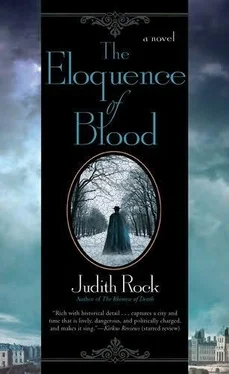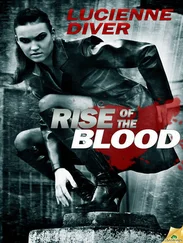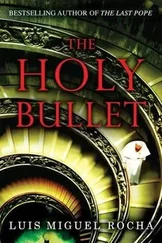Judith Rock - The Eloquence of Blood
Здесь есть возможность читать онлайн «Judith Rock - The Eloquence of Blood» весь текст электронной книги совершенно бесплатно (целиком полную версию без сокращений). В некоторых случаях можно слушать аудио, скачать через торрент в формате fb2 и присутствует краткое содержание. Жанр: Исторический детектив, на английском языке. Описание произведения, (предисловие) а так же отзывы посетителей доступны на портале библиотеки ЛибКат.
- Название:The Eloquence of Blood
- Автор:
- Жанр:
- Год:неизвестен
- ISBN:нет данных
- Рейтинг книги:5 / 5. Голосов: 1
-
Избранное:Добавить в избранное
- Отзывы:
-
Ваша оценка:
- 100
- 1
- 2
- 3
- 4
- 5
The Eloquence of Blood: краткое содержание, описание и аннотация
Предлагаем к чтению аннотацию, описание, краткое содержание или предисловие (зависит от того, что написал сам автор книги «The Eloquence of Blood»). Если вы не нашли необходимую информацию о книге — напишите в комментариях, мы постараемся отыскать её.
The Eloquence of Blood — читать онлайн бесплатно полную книгу (весь текст) целиком
Ниже представлен текст книги, разбитый по страницам. Система сохранения места последней прочитанной страницы, позволяет с удобством читать онлайн бесплатно книгу «The Eloquence of Blood», без необходимости каждый раз заново искать на чём Вы остановились. Поставьте закладку, и сможете в любой момент перейти на страницу, на которой закончили чтение.
Интервал:
Закладка:
Ah, Charles thought, now the bone is laid bare. For many years now, Beauchamps had not only created and taught the dances for college productions, he had also written much of the music. He and Jouvancy gazed furiously at each other.
“You are being childish,” Jouvancy snapped. “After all, though I very often write our tragedies, this one is Pere Pallu’s work.”
“You are a religious. I am an artist.”
The air around Jouvancy fairly crackled, and Charles involuntarily shut his eyes.
Nothing happened, and he opened them in time to see Jouvancy arrange his face in a smile, put his head on one side, and widen his limpid blue eyes.
“We all know,” the rhetoric master said, “how justly famous is your collection of paintings. It is known all over France.”
“Europe.”
“I beg your pardon?”
“Justly famous all over Europe.”
“I was coming to that,” Jouvancy snapped. He composed his face again. “But, maitre, could you not give us the benefit of your inestimable skill and go to Rome after the tenth of February? Italy will be warmer then, you know.”
“Italy is warmer now.” Beauchamps made Jouvancy a flourished bow. “I take my leave, mon pere, and wish you every success with your little show.” With another bow to Charles and the triumphant lift of an eyebrow, he swept down the salle des actes and out the door.
Mentally girding his loins, Charles joined Jouvancy on the stage. The rhetoric master’s face had gone purple.
“This is outrageous, maitre. This is beyond anything, this is an unforgivable insult to the college. How dare he leave us like this? He is the ballet master and we have a performance! The man is always impossible, but who would have thought him capable of this? When Pere Le Picart hears of it, that will be the end of Maitre Beauchamps at Louis le Grand, I promise you!”
Charles doubted that, but had learned in the course of August’s show to hold his tongue and let Jouvancy’s indignation sputter itself out. The courtyard clock chimed and teenaged boys swarmed into the chamber, their cubiculaire escort waiting at the door until they were all inside. The midday recreation hour was supposed to be quiet, but in winter that rule was somewhat relaxed for the sake of warmth. The boys were red-faced and lively from running in the cold and wind, and more than one black scholar’s gown was starred with wet patches, most likely from snowballs.
Jouvancy shook his head hopelessly and turned his back on the students. “And Monsieur Charpentier has not finished the music. He sent me a note just after dinner. What are we to do?” He dropped his head into his hands.
Charles gathered the boys with his eyes and, smiling, touched his finger to his lips. The students stood in a silent huddle, their bright eyes fixed on Jouvancy. Charles turned back to the senior rhetoric master and made the suggestion that had just leaped full-blown into his mind.
“Mon pere, I think we can safely leave Maitre Beauchamps to Pere Le Picart. But allow me to suggest an excellent and honorable young dancing master who I’m sure would be only too glad of the chance to work for us. I have seen the results of his teaching and can wholeheartedly recommend him.” Charles himself would, as usual, be the overall dance director. But since it was improper for a Jesuit to dance in public, even if only teaching, every show that included dancing needed a secular ballet master as well.
Jouvancy straightened and frowned at Charles. “Where have you seen these results, may I ask?”
“When I called on a member of our bourgeois Congregation of the Sainte Vierge, mon pere. This young man was in the house, giving a lesson to one of the young people there. I was very impressed with him,” Charles said, happily remembering his first sight of Mlle Isabel Brion, bouncing through her dancing lesson.
“His name?”
“Monsieur Germain Morel, mon pere. He is at the beginning of his career and would not require high pay.”
“That, at least, is to the good. Very well, tell him to be here tomorrow at this time, and I will see what he can do. I will speak to the bursar. He will certainly cost less than Maitre Beauchamps, and we must have someone.” Presenting his best profile, Jouvancy gazed tragically into the middle distance. “How it pains me to see these practitioners of dance act as though they are the center of every performance. How dare a mere practitioner like Maitre Beauchamps treat a learned theoretician such as myself as he has just done? But that is increasingly the way; no one cares why a thing should be done. Or not done! They care only for doing it, as fast and as vulgarly as possible!” He lifted a graceful hand, as though inviting the ancients, those revered makers of art’s eternal rules, to comment.
They did not, but Charles stood in for them, murmuring ambiguously as he always did when Jouvancy started the theoretician-versus-practitioner argument. The academic notion that theoreticians were superior to practitioners was a familiar one. But as he’d had occasion to think before now, calling the great dancer and dancing master Beauchamps “only a practitioner” was like calling the pope “only a priest.”
Hearing the boys shifting impatiently behind him, and judging that Jouvancy’s performance of the heroically long-suffering producer-director was nearly over, Charles said deferentially, “Mon pere, today’s rehearsal is not lost, you know.”
Or wouldn’t be, if they got to work soon. These rehearsals, shorter than those for the summer show, would last only two hours. At three o’clock, the boys would go on to the rhetoric classroom, where the remainder of class time was spent working under Pere Pallu, another of Louis le Grand’s rhetoric masters and author of the Latin script for Celsus, February’s spoken tragedy. Jouvancy would go with them to share the rest of the afternoon’s teaching. Charles, under Pere Le Picart’s order, was excused from assisting in the classroom while he followed the police inquiry into the murders.
“You have Pere Pallu’s tragedy script,” Charles went on. “And I can look at the dancers’ particular skills to see who ought to be cast in what kind of dance.”
Jouvancy suddenly abandoned his performance, clapped a hand to his forehead, and drew a folded paper from his cassock. “Forgive me, maitre, this crisis drove everything from my mind. Monsieur Charpentier sent a list of dances.” He handed the paper to Charles.
“Good. Then we have what we need, do we not?”
“Yes, of course we do!” As though Charles had been the one delaying him, Jouvancy turned in a whirl of cassock skirts and advanced on the waiting students. “So, messieurs. You already know which of you are in the tragedy and which in the musical intermedes. We will begin. But first, let us pray.”
Everyone bowed his head.
“Dear Lord of hosts,” Jouvancy said, more militantly than was usual with him, “bless this work we begin today. Strengthen our voices and our bodies. And make each one know his place. And keep it with humility. Amen.” Having thus further relieved his feelings, he took the actors onto the little stage while Charles gathered the dancers at the far end of the chamber and looked them over.
There were seven of them. Six were the best dancers in the senior rhetoric class: Armand Beauclaire, from Paris; Walter Connor, from Ireland; Michele Bertamelli, from Milan; Charles Lennox, natural son of the late Charles II of England; Andre Chenac, from Tours; and Olivier Thiers, from Paris. The seventh was Henri Montmorency, the oxlike eighteen-year-old scion of one of France’s most noble families. His mother had “asked” that he be allowed to dance in the February show, which she and other Montmorencys would attend. Because they were Montmorencys, it went without saying that the boy would dance. No matter that the boy was one of Maitre Beauchamps’s few failures, having proved himself incapable of dancing. In Jesuit colleges, rank was less the arbiter of everything than it was elsewhere. All students were expected to treat each other courteously, and their success in the classroom depended solely on their own wits and achievements. Nonetheless, boys from great families got the classroom’s best seats and the best chambers in the student living quarters, and nobility was-in Charles’s opinion-too often a consideration in casting plays and ballets. Charles was not pleased at having to find something for M. Montmorency to do in Celse.
Читать дальшеИнтервал:
Закладка:
Похожие книги на «The Eloquence of Blood»
Представляем Вашему вниманию похожие книги на «The Eloquence of Blood» списком для выбора. Мы отобрали схожую по названию и смыслу литературу в надежде предоставить читателям больше вариантов отыскать новые, интересные, ещё непрочитанные произведения.
Обсуждение, отзывы о книге «The Eloquence of Blood» и просто собственные мнения читателей. Оставьте ваши комментарии, напишите, что Вы думаете о произведении, его смысле или главных героях. Укажите что конкретно понравилось, а что нет, и почему Вы так считаете.












